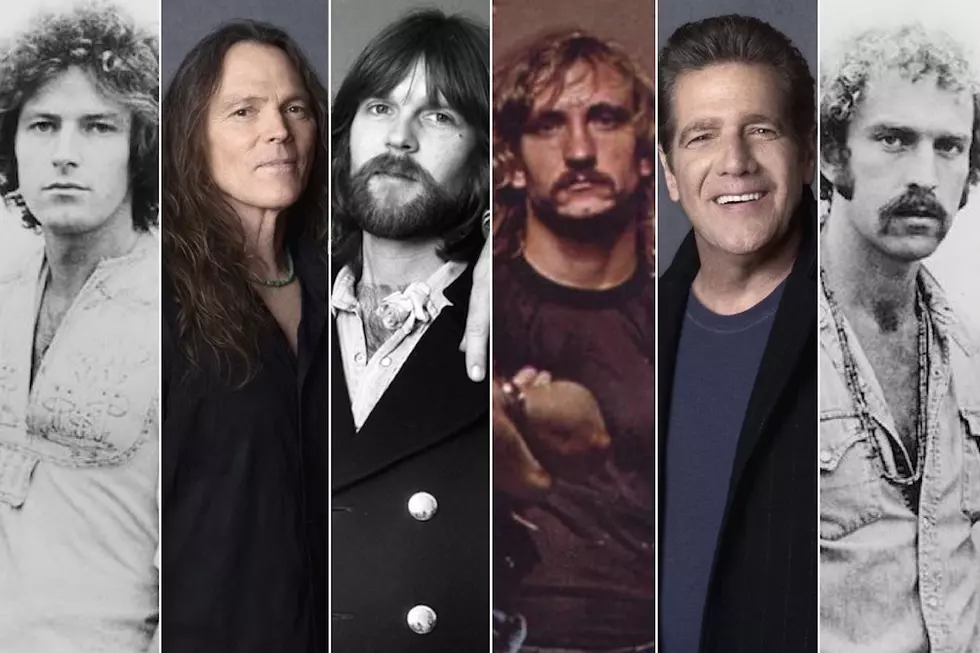
A Laid-Back Anthem for Restless Souls on the Road to Self-Discovery
When “Take It Easy” was released in May 1972 as the debut single by the Eagles, it introduced the world not just to a new band, but to an entire ethos—one steeped in sun-drenched harmonies, open-road longing, and the weary optimism of youth. Peaking at No. 12 on the Billboard Hot 100, the song anchored the band’s self-titled debut album, Eagles, and marked the beginning of their enduring legacy in American rock. Co-written by Jackson Browne and Glenn Frey, this breezy yet profound track has since become a cultural touchstone—an emblem of West Coast cool and unburdened freedom that belied the deeper currents coursing just beneath its polished surface.
To understand “Take It Easy”, one must first grasp its dual nature: it is at once a casual invitation to lighten one’s emotional load and a poignant meditation on inner turmoil disguised as roadside serenity. The song’s origin is rooted in Jackson Browne’s early drafts—he had been struggling with the second verse when his upstairs neighbor and friend, Glenn Frey, offered to help finish it. What emerged from this collaboration was more than just a radio-friendly hit; it was a philosophical posture set to music, one that would come to define not only the Eagles’ sonic identity but also a generational mood.
Musically, the song is deceptively simple—a country-rock arrangement built around a relaxed tempo, jangling twelve-string guitars, and tight vocal harmonies. But within that simplicity lies an intricate balancing act between lightness and gravity. Frey’s lead vocal exudes a rakish charm, yet behind his easygoing delivery is a subtle undercurrent of exhaustion and indecision. “Well, I’m a runnin’ down the road tryin’ to loosen my load,” he sings, as if motion itself could absolve him of life’s entanglements.
And entangled he is. The lyric’s most iconic moment—“I’ve got seven women on my mind / Four that wanna own me, two that wanna stone me / One says she’s a friend of mine”—straddles humor and desperation. It evokes not masculine bravado but emotional fragmentation: the narrator isn’t reveling in romantic conquest so much as drowning in its implications. In these lines we find the tension at the heart of 1970s Americana—the pull between freedom and connection, between self-reliance and vulnerability.
The song’s refrain—“Take it easy”—becomes less of a mantra and more of an aspiration, almost a plea. It reflects a time when societal expectations were shifting, when disillusionment with old norms gave rise to new ways of being—and of leaving. The town of Winslow, Arizona (immortalized by name-check in the second verse), has become an almost mythic waypoint for those seeking meaning in motion.
In retrospect, “Take It Easy” wasn’t merely an auspicious debut; it was a mission statement. The Eagles would go on to chronicle the contradictions of American life with ever greater sophistication, but here—at mile marker one—they offered something profound: solace wrapped in melody, humor shading into heartbreak, and wisdom masquerading as wanderlust. It remains, even now, a postcard from the edge of self-knowledge—a gentle reminder that sometimes the best way forward is simply to take it easy.